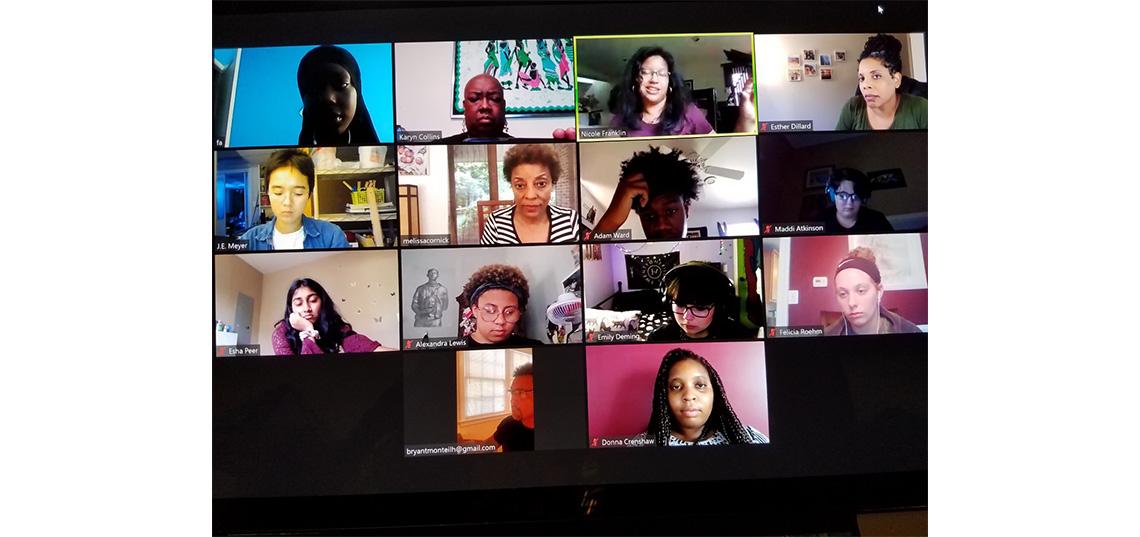
The Hugh N. Boyd Journalism Diversity Workshop is held every year and aims to achieve the same goal it's had since its founding: to work with a culturally and ethnically diverse group of high school students to help them improve their journalism skills and to inspire them to continue to use those skills as professional or citizen journalists.
Traditionally, the workshop has been held in person at Rutgers and offered the students various learning opportunities, including hands-on projects, field trips, projects, activities, guest speakers, and one-on-one coaching with experienced journalists in the field.
However, this year’s workshop looked a little different. Everything was held online because of the COVID-19 pandemic. Organized by the Director, SC&I Part-time Faculty member Karyn Collins, and the workshop’s Co-Director for Digital Education Melissa Cornick, they ran the entire program on Zoom for a duration of six days. The 10 students were able to work on their print and digital media projects from 9 a.m. to 6 p.m. with the help of the coaches and staff available virtually through Zoom or phone call. There was also a special presentation from NBC News.
The students also received a kit of mobile journalism equipment such as a mini tripod, small microphone, large capacity flash drive, headphones, and other little things students needed to help them create multimedia or journalism pieces during the six days.
The workshop was also able to provide the students with a seven-month subscription to Adobe Premiere Pro so they can continue practicing editing software even when the program is over.
“Our philosophy is that we are training journalists for the future and providing them with the tools they need so they can start practicing as journalists now,” said Collins. “Journalism isn’t an exclusive activity or something you have to wait until you’re older to do. We feel that teenagers have a story to tell. They have an important voice that is often not heard.”
Holding everything online presented a few challenges, Collins said. “We don’t have their undivided attention. Even on the Zoom link, I see people floating in and out of the room or you hear someone’s baby sister in the background.” said Collins. “You know, it’s life.”
A lot of work was put in to make this program possible this year, Collins said, and it would not have been possible without the huge support system at Rutgers.
“We are so appreciative of the faculty, the donors, and administrative support staff who have worked so hard with us to help us make this year’s program a reality. It does take a village and I can’t say enough about that support,” said Collins.
Explore the Journalism and Media Studies Department at the Rutgers School of Communication and Information here.
Photo: Courtesy of Karyn Collins
